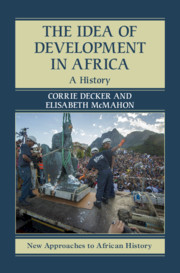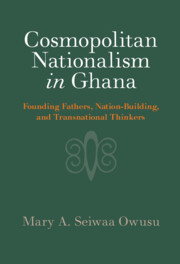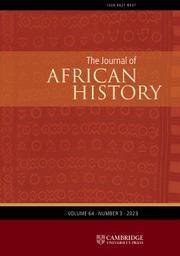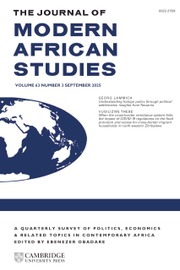The Idea of Development in Africa
The Idea of Development in Africa challenges prevailing international development discourses about the continent, by tracing the history of ideas, practices, and 'problems' of development used in Africa. In doing so, it offers an innovative approach to examining the history and culture of development through the lens of the development episteme, which has been foundational to the 'idea of Africa' in western discourses since the early 1800s. The study weaves together an historical narrative of how the idea of development emerged with an account of the policies and practices of development in colonial and postcolonial Africa. The book highlights four enduring themes in African development, including their present-day ramifications: domesticity, education, health, and industrialization. Offering a balance between historical overview and analysis of past and present case studies, Elisabeth McMahon and Corrie Decker demonstrate that Africans have always co-opted, challenged, and reformed the idea of development, even as the western-centric development episteme presumes a one-way flow of ideas and funding from the West to Africa.
- An accessible and engaging course book containing a balance between historical overview and analysis of case studies with each chapter providing at least one detailed case study to demonstrate key themes
- Provides a refreshing take on the history and culture of development that begins with the foundations of the idea of development in nineteenth-century imperialism and colonialism
- Offers important and useful historical context for students and scholars working in African development today
Reviews & endorsements
‘A smart, sweeping history that explores how colonial ideas about Africa and Africans - including moral imperatives, the inventions of 'tribes,' and scientific racism - shaped development paradigms and projects across the continent. The Idea of Development in Africa is a 'must-teach' book for courses on Africa and in development studies.’ Dorothy Hodgson, Brandeis University
‘This refreshing and innovative study packs a double punch. First, it offers a bracing critique of the development industry, locating its roots deep within the colonial mind-set. Then it follows through with a brighter vision of Africa, one that emerges from the continent’s own artists, thinkers, and leaders. A feast to which all are invited.’ Gregory Mann, Columbia University
‘At last, an accessible book that explains the history of development as an idea - critical background for any students or practitioners interested in engaging with Africa’s development today. The authors lay out the ways developmental thinking emerged globally alongside empire and colonialism, and how this way of thinking continues to impact the practice of development today. Smart and sophisticated, with helpful resources for additional reading and sidebars that delve more deeply into specific topics.’ Jamie Monson, Michigan State University
‘Decker and McMahon’s co-authored volume is the latest and most comprehensive compilation of the development concept or episteme in African history made accessible to students and practitioners alike.’ Leslie Anne Hadfield, International Journal of African Historical Studies
‘… the book is thought provoking as it discusses known material in a new light … Recommended. Graduate students and faculty.’ J. E. Weaver, Choice
Product details
October 2020Hardback
9781107103696
280 pages
150 × 230 × 25 mm
0.67kg
Available
Table of Contents
- Introduction
- Part I. Origins of the Development Episteme:
- 1. From Progress to Development
- 2. Knowledge and the Development Episteme
- 3. Eugenics and Racism in the Development Episteme
- 4. Decolonizing the Idea of Development
- Part II. Implementation of the Development Episteme:
- 5. The Salvation of Science
- 6. Challenges to Development
- 7. From Modernization to Structural Adjustment
- 8. The New Missionaries
- Part III. Development 'Problems':
- 9. Reshaping Huts and Homes
- 10. Lessons in Separate Development
- 11. Capitalizing on Dis-Ease
- 12. Manufacturing Modernization
- 13. African Critiques of the Development Episteme.







